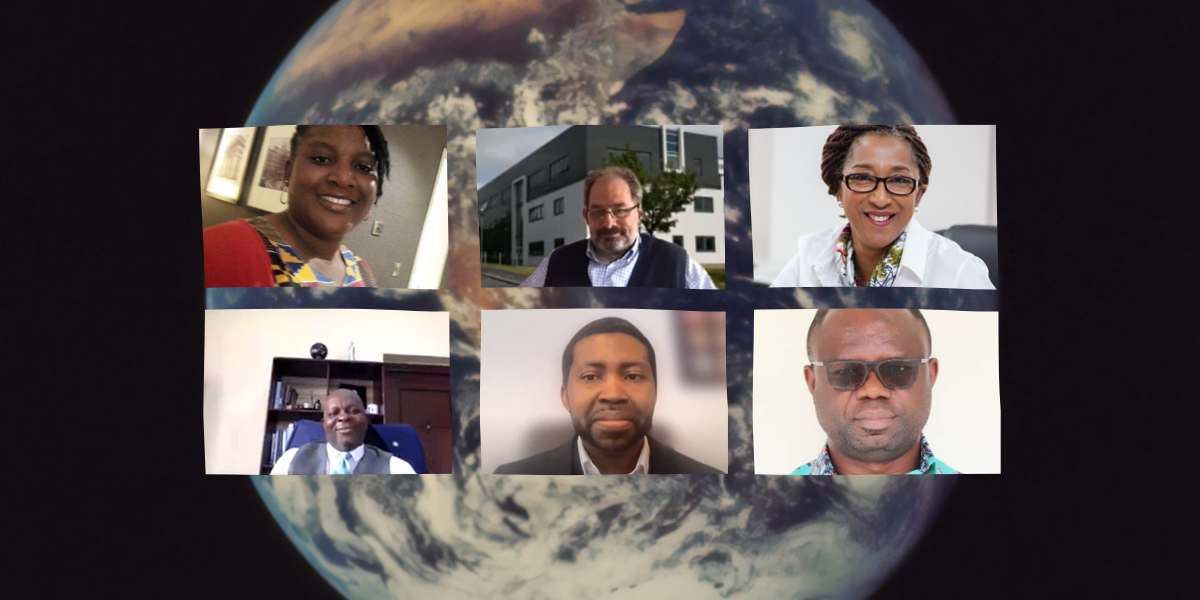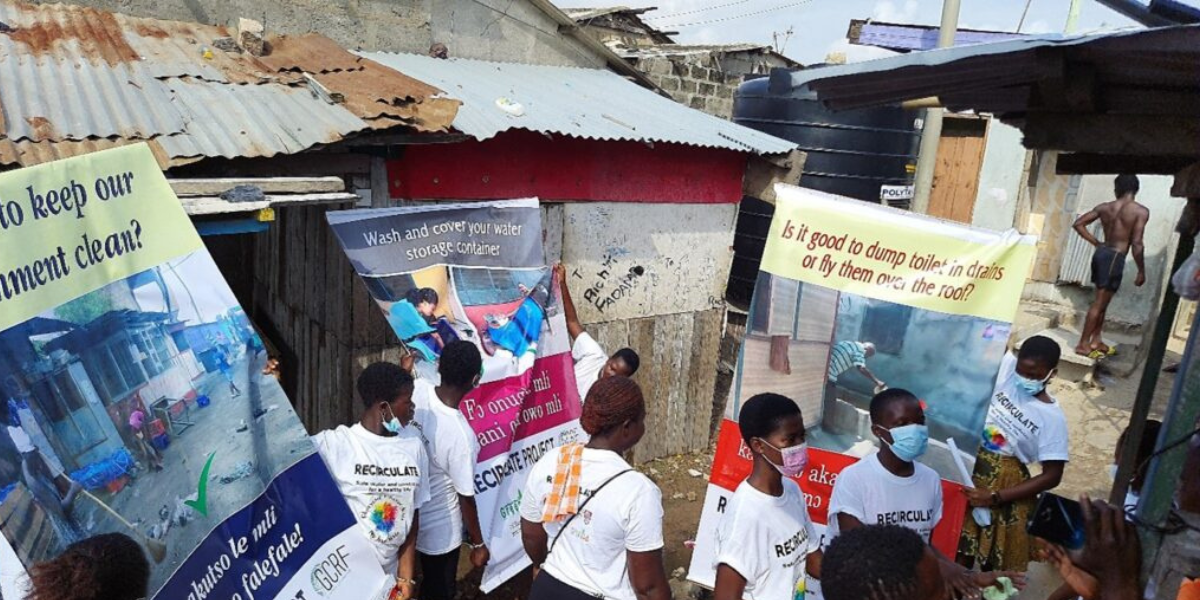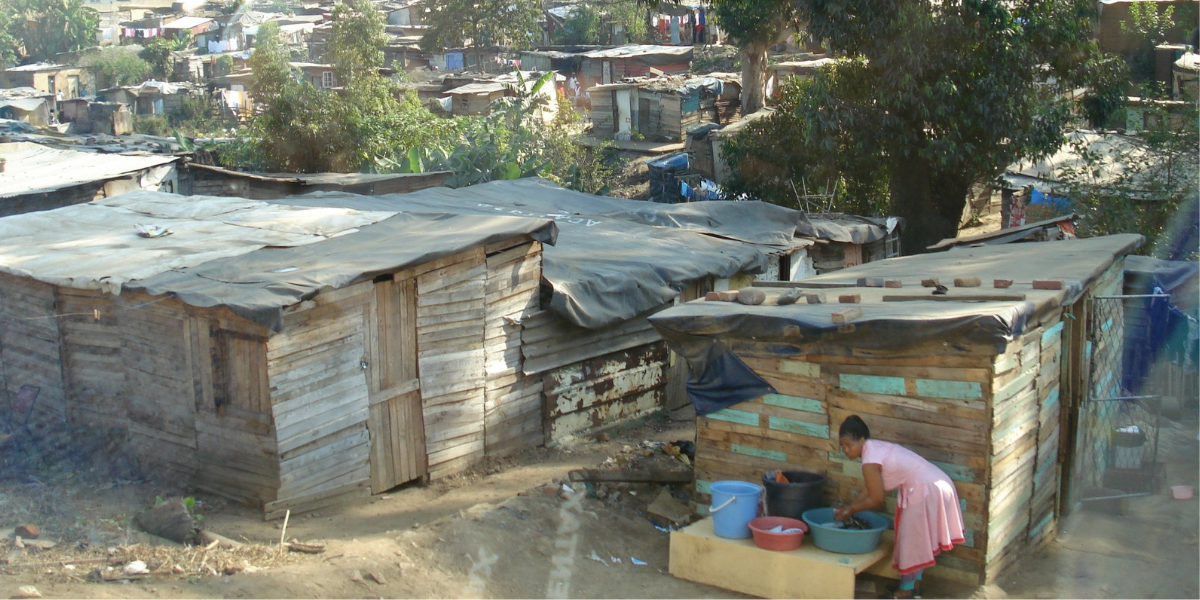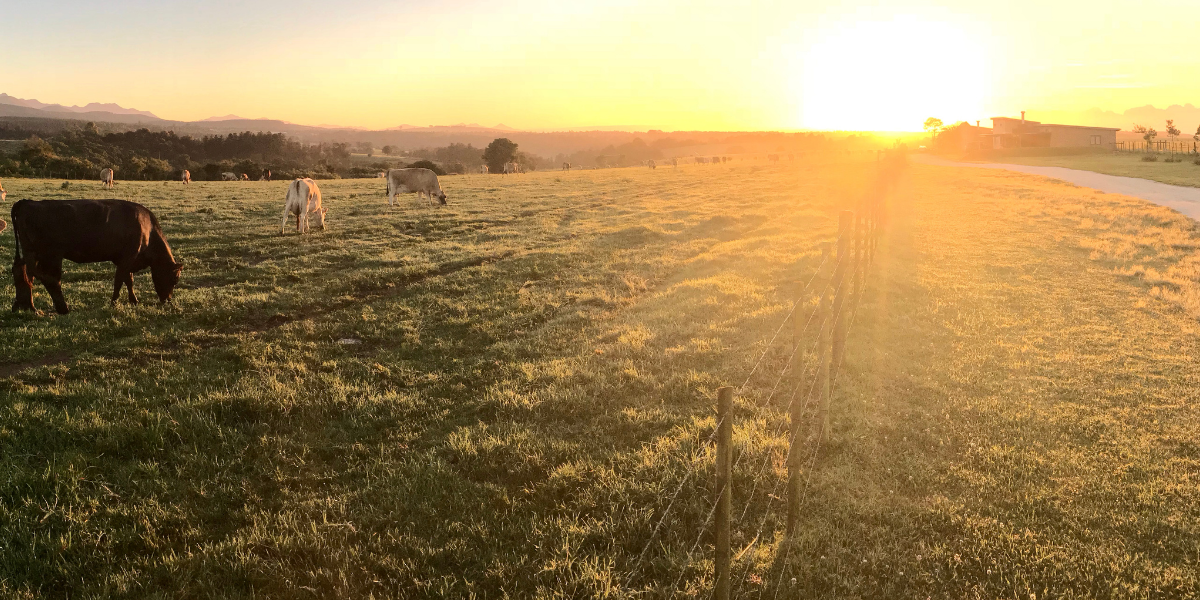
In October 2021, the focus of our PARTICIPATE engagement was COP26 and more specifically circular solutions for Africa. On 21st October our COP26: Circular Solutions webinar posed the question “How can eco-innovation deliver sustainable development in Africa?” exploring African perspectives on the potential for eco-innovation. Moderated by Dr Akan Odon and the RECIRCULATE team, the webinar featured co-leaders of our workpackages “Entrepreneurship & Innovation“, “Water for Health & Sanitation“, “Water for Food Production” and “Water for Energy Production” from Ghana, Nigeria and the UK.
Dr Francis Agyenim (RECIRCULATE “Health & Sanitation” workpackage co-lead and Director, CSIR – Institute of Industrial Research (IIR)) presented the journey of CSIR-IIR to sustainable development. He started his presentation with a climate risk assessment of Ghana and sectors affected by the climate change. He then briefly introduced the role of CSIR-IIR and the impact of the RECIRCULATE & ACTUATE projects on the country. Francis concluded his speech with an overview of key objectives and goals and future plans looking beyond the projects.
Dr Patricia Oteng-Darko (Research Scientist, CSIR – Crops Research Institute (CRI)) started with a brief overview of the linear food system in Ghana highlighting the need for eco-innovation in transitioning to circularity. She then presented some of the advanced technologies that CSIR-CRI implemented over the years with regards to enhancing food production and water conservation. Patricia concluded her presentation with an emphasis on the importance of Africa to adopt eco-innovative technologies to drive sustainability and meet current environmental, health, economic and social needs.
Dr Cynthia Forson (RECIRCULATE “Entrepreneurship & Innovation” workpackage co-lead and Deputy Provost at Lancaster University Ghana) presented how social sciences research in Africa can be engaged in eco-innovation. She started with an overview of the current eco-innovation strategies at Lancaster University Ghana highlighting the establishment of a new campus (October 2021) which will use solar energy and bio-digester and aims to plant 5 million trees across Ghana. She then introduced the importance of using a gender lens in understanding and reinforcing eco-innovation as a driver of sustainable development in Africa. Cynthia concluded her speech by linking the role of the RECIRCULATE project in creating women`s eco-innovation-related knowledge networks and the role of market queens in waste management in markets in Accra, Ghana.




